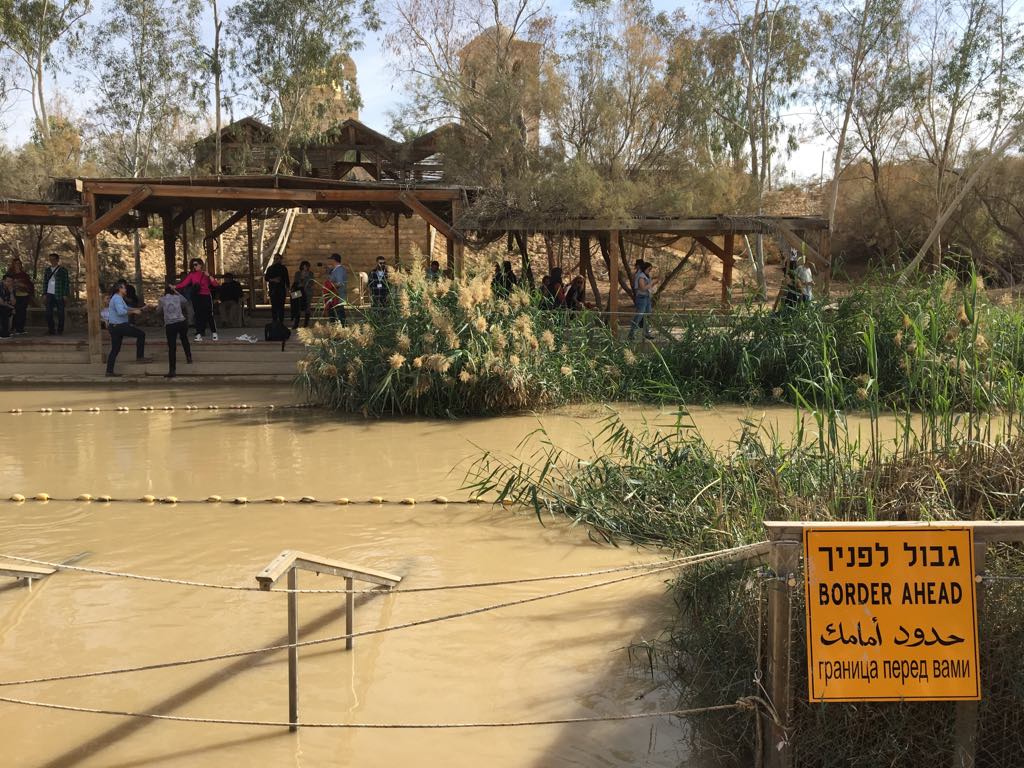
Epiphany!

Epiphany!
As is to be expected, Christmas is a big affair in Bethlehem. As the Christmas season passed for many Western Christians with the passing of December, the celebrations in Palestine have continued! With the varying denominations present in Palestine and the broader region in general, January marks the celebration of Epiphany. Traditionally occurring on January 6th for Catholics, Epiphany is celebrated by the Orthodox on January 19th.
East and West
Most typically, in the Western tradition (Roman Catholic and Protestant), Epiphany denotes the visitation of the magi to baby Jesus. (Matthew 2:1-12) This revelation of the Christ child to the magi is symbolic and inaugural of Jesus’ physical manifestation to the Gentiles. This day is also referred to as “Three Kings Day” in many other parts of the world.
The Eastern church, mostly represented by the Orthodox Christians in the region, views Epiphany as the day Jesus was baptized in the Jordan river by John the Baptist. (Matthew 3:13-17) Both of these understandings culminate to something larger when viewed more broadly: it was Jesus’ revelation of His incarnation to the world. Whether as a small child being sought out by the magi that traveled a great distance to see and worship this new king, or the baptism of Jesus to signify the death and resurrection that each of His followers would experience, we see God’s interaction with humanity in the person of Jesus.
Identity
Epiphany is perhaps even more special in the Holy Land as one is able to go to the Jordan river itself and participate in the celebration and remembrance of Jesus’ baptism. Members from all Christian backgrounds make their way to the Jordan river between the West Bank and Jordan to partake in the festivities.
I spoke with several Palestinian Christians that have gone to the Epiphany services at the Jordan river over the course of their life, and found many of their experiences to have a similar outlook. This was a time that their family would go together to the baptismal site of Jesus and take time to remember their identity in this land and throughout history as a follower of Jesus.
“As Christians, we remember our identity when we go there. Some of us even choose to be re-baptized as a reminder and a re-committing of ourselves to Christ.”
The banks of the Jordan river are saturated with religious pilgrims that have traveled to the Holy Land from all over the world. Many choose to don a white gown, step down into the water and be baptized. It’s something of an international display, perhaps much of what pleases God’s heart in seeing His children from all over the world come together in worship and celebration.
Double the Celebration!
For the localized populations, specifically Palestinians living in the West Bank and Jordan, this time is for double celebration. Several of the Palestinian Christians I spoke to told me how this gathering at the Jordan river (which also serves as the border of the Occupied West Bank with Jordan) doubled as an opportunity to see their Palestinian family members living in Jordan (who are refused access to the West Bank) standing across the bank of the river in Jordan. Due to the political situation, many Palestinians who now reside in Jordan are no longer able to come back into Palestine. One particular account that was retold to me was how families would communicate back and forth on walkie-talkies during their time at the river. This was a “family reunion” of sorts.
It struck me that this celebration of Epiphany – God’s manifestation of Himself to humanity in the form of an infant, and then later by His baptism, life, death and resurrection – leaves with us the impression and the importance of the incarnation. To be flesh and to be human were things that God saw as worthy of becoming so that we might know Him. So when I hear of the joy it brought to my friends to physically see their family members on the bank of the Jordan river, I imagine the joy it must have had and still must bring to God’s heart to dwell among man. I suspect that today God looks at His humanity, and when we walk in the ways that reflect the life and teaching of Jesus – the Son who became flesh – that He pauses and says,
“This is my beloved, in whom I am well-pleased.” (Matthew 3:17)
For more information on places, people and experiences you can encounter on your next visit to the Holy Land, check out Ta’Shuf tours! This extension of Bethlehem Bible College arranges tours that display the beauty of our biblical history all the while tying it together with the current realities of Israel/Palestine today! Check it out, and consider coming to see the Holy Land for yourself!
Kamila is volunteering full-time with Bethlehem Bible College in the Communications Department. In addition to her love for writing and sharing stories, her endeavors in Bethlehem and greater Palestine involve facilitating cultural immersion programs for young adults from North America to see first-hand the realities that those living here encounter. At times deemed the “eternal optimist,” Kamila holds fast to the future hope of restoration and reconciliation of all things back to God. When she’s not writing, or organizing trips, you’ll catch her training and competing with the Ultimate Palestine frisbee team.


